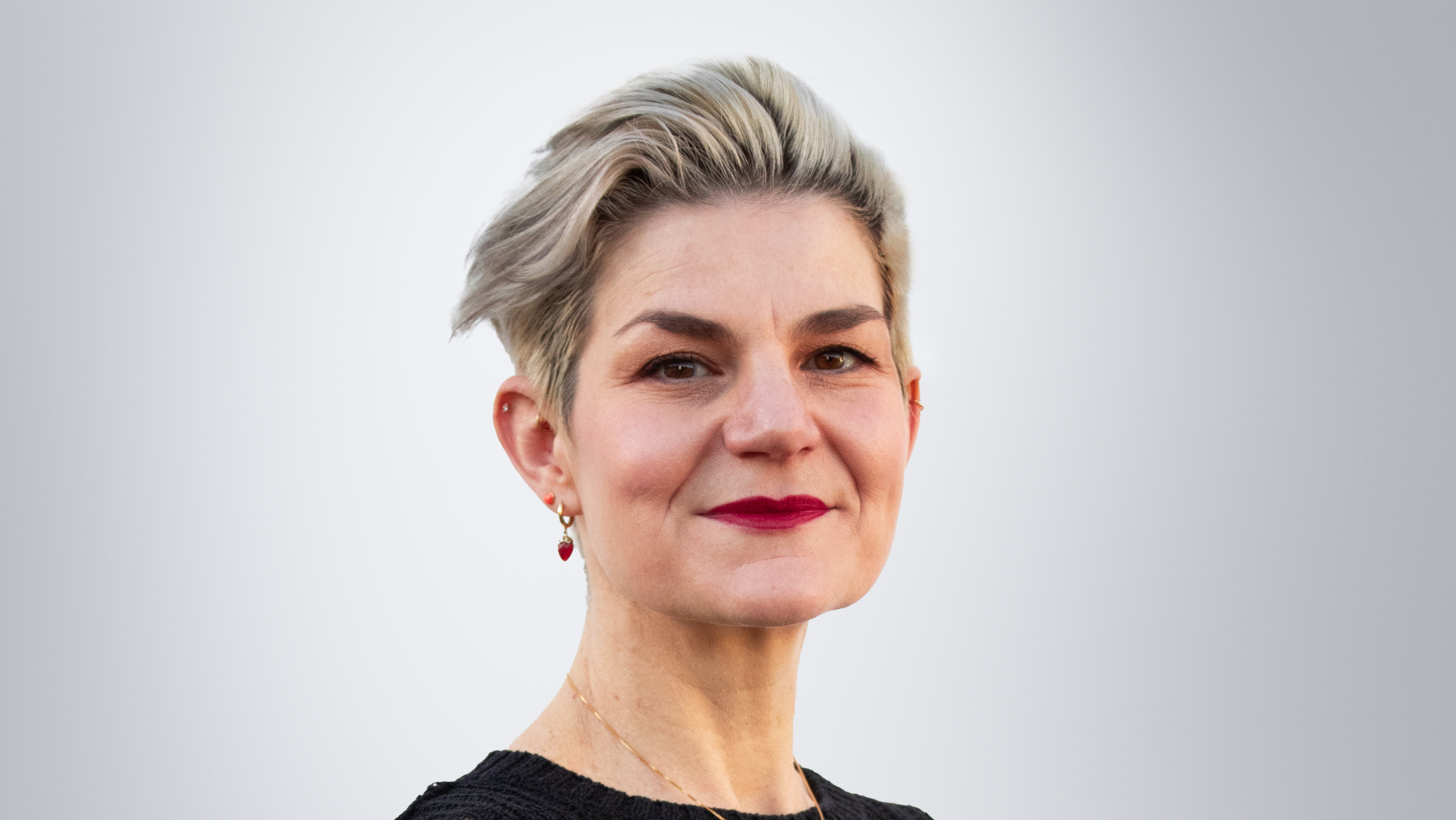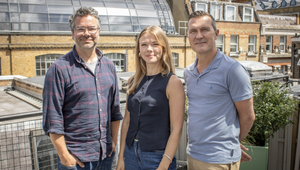
Planning For The Best: Nicky Vita on Finding Balance and Understanding ‘Why’

Atomic's leadership team was completed when Nicky Vita joined from creative behemoth VCCP. She's forged a stellar career overseeing the strategic output at world-renowned agencies, including McCann, MullenLowe, Dare, Engine Group and BBH. From financial services to travel, Nicky has worked on award-winning global and local campaigns for Adidas, Amazon, Primark, Premier Foods, O2 and Barclaycard. A proud South African, Nicky is passionate about work that moves people.
LBB> What do you think is the difference between a strategist and a planner? Is there one?
Nicky> Potato, potato. In the day-to-day, I think it’s much of a muchness for most of us. If I had to be a purist, I’d argue that a [pure] strategist and [pure] planner operate at opposite ends of a spectrum: ‘Strategy’ deals with big-picture upstream problem-solving, scenario planning, and vision setting; while ‘planning’ focuses on execution, the minutia, and making it all happen.
While there are specialists at the extremes, I’d argue that most planners and strategists aren’t purists and operate across this spectrum on a day-to-day basis. Personally, I prefer the sound of strategist, but I use the terms interchangeably and certainly wouldn’t die on a hill for either.
LBB> And which description do you think suits the way you work best?
Nicky> It all depends on the project, but arguably, strategy is nothing without execution (no normal human being ever gets excited about a deck, sorry!) Being able to set the vision for a brand - regardless of how far upstream you’re able to go - and see it through to implementation (the work, the campaign, the impact) is what really floats my boat.
LBB> We’re used to hearing about the best creative advertising campaigns, but what’s your favourite historic campaign from a strategic perspective? One that you feel demonstrates great strategy?
Nicky> Guinness’ ‘Good things Come…’, as embodied by the surfer film, was a campaign I found incredibly inspiring as a young planner.
The same with Johnnie Walker’s 'Keep Walking'. Both campaigns embodied big, bold, universal insights that captured emotion and ambition, but were fundamentally rooted in a product truth and executed with brilliance and precision over a number of years.
Then there was a very different type of strategic thinking with Skoda’s UK ‘It’s a Skoda, honest’ campaign. A stroke of pure genius, from insight to strategy to execution. I’ll never forget my (very first) MD at TBWA\ Hunt\ Lascaris in Johannesburg (ja, bru), showing us all the ‘Winding up a hill’ car ads (so many) …and then showing us the UK Skoda campaign.
For those of you who don’t know - or are too young to remember - Skoda was seen as a poor-quality car that no self-respecting Brit would buy. The advertising played into this very insight, leveraging people’s expectations of the car and brand and - bam! The UK consequently outsold the rest of Europe (which ran a conventional ‘Winding up a hill’ car ad). That campaign still holds a special place in my heart.
LBB> When you’re turning a business brief into something that can inform an inspiring creative campaign, what do you find the most useful resource to draw on?
Nicky> I tend to start by sketching out some of my gut reactions and thoughts (streams of consciousness) then I dive into reading, listening, searching and talking. Chatting to someone who knows a lot about a specific industry is a great way to get up to speed quickly (an expert, insider, influencer). A planner I know swears by TrustPilot for real people’s views and reviews. Another laughs at my soft spot for WARC (case studies galore) and Mintel (great for getting to know a category in one fell swoop).
I also love podcasts (Alf x Rory Sutherland gave me a gem for a pitch), WhatsApp groups (call it qual), Google, Chat GPT, Instagram and books (one of my best pitch quotes came out of a book about shopping), as well as films. I’d say the category often dictates the inspiration.
Creatives - and clients - love a good, gritty stat, a great quote (backed up by rigour), or an inspiring visual or example. Mostly, we all love something real and true, and you never quite know where you’ll find it (but you’ll know when you do).
LBB> What part of your job/the strategic process do you enjoy the most?
Nicky> I love it when you get a brief and you think, 'Urgh, really?!'. But then you start digging and exploring and discover all kinds of exciting things. I love that moment when you realise that what you thought would be dull actually has infinite potential to be brilliant. When you realise your own mind has been changed or stretched, and you now really, really want to convert other people (I’m one of those annoying people who really get into the brands I plan for).
LBB> What strategic maxims, frameworks or principles do you find yourself going back to over and over again? Why are they so useful?
Nicky> I love the ‘Three Truths Model’ (brand, human, competitor / culture / market… it goes by many names). I love it because it doesn’t restrict me but rather provides a framework that I can adapt in any way to suit my narrative or points of emphasis (I am like a child in that sense).
It’s also a no BS way of thinking about the big picture without getting bogged down in proprietary™ tools. That said, I’d argue that we borrow, steal and adapt whatever suits us, so a sprinkling of whatever works is what works.
LBB> What sort of creatives do you like to work with? As a strategist, what do you want them to do with the information you give them?
Nicky> I love collaborative creatives (this word gets such a bad rap because people confuse it with compromise. It’s really not the same - real collaboration is golden). We build together; we’re creating work together - from their thoughts on my strategy and the insights or ‘information’ I provide, to my creative input and thoughts on will make the work resonate or work harder.
And I love it when a creative team grabs a brief that I’ve written and takes it somewhere unexpected - when they don’t just regurgitate the insight or strategy but make a leap that we all then fight for.
LBB> There’s a negative stereotype about strategy being used to validate creative ideas, rather than as a resource to inform them and make sure they’re effective. How do you make sure the agency gets this the right way round?
Nicky> The funny thing is that, in theory, we write the strategy, uncover a nugget of data or insight that excites people, brief the teams, finesse the work, and ‘voila’. But the truth is, it doesn’t always work in such a linear fashion. It’s about finding the balance. I’ve mostly worked in agencies where we write the strategy first and then get to the work, and honestly, I think that’s mostly the right way round. But, as we love to say, ‘good ideas come from anywhere’. As long as it’s right, it’s right.
LBB> What have you found to be the most important consideration in recruiting and nurturing strategic talent?
Nicky> I like to feel that strategists are hungry, that they have good instincts but also know - or want to learn to learn - where to look for more and where to dig. I want to see some level of individuality; I am not looking for clones. I want people who will approach things differently, and whom I can learn from too. This applies to nurturing talent as well - it’s personal, and what motivates one person won’t motivate someone else.
Red flags for me… please, do your homework before an interview. Not preparing is basically saying you don’t care, you’re not hungry, you’re not curious. The opposite of what we want. And I particularly lean away from arrogance or a sense of ‘ambition’ that overshadows decency (there’s never a need for that).
LBB> In recent years it seems like effectiveness awards have grown in prestige and agencies have paid more attention to them. How do you think this has impacted on how strategists work and the way they are perceived?
Nicky> Effectiveness awards have always had prestige, but it’s possible that some agencies have only recently realised that an effectiveness story is particularly valuable for [new] business, especially when coupled with great creative work. It doesn’t change the day-to-day work that planners do, but perhaps the rest of an agency now holds more respect for these types of awards.
LBB> Do you have any frustrations with planning/strategy as a discipline?
Nicky> We’re not ‘one size fits all’ - some people think that planners or strategists all work or think it the same way, or can do the same things. There’s nothing worse and more demoralising than being told to be more like [insert planner’s name here], especially when you know that they have a very different skill set, experience, or personality.
And I strongly disagree with the idea that planners aren’t always good at ‘managing people’ because of how our brains work. That’s such old-school rubbish. We’re meant to be empathetic about human beings - the people we advertise to and aim to get loving our brands. We should be able to apply this to each other internally too.
LBB> What advice would you give to anyone considering a career as a strategist/planner?
Nicky> Understand what makes you curious, what excites you, what stimulates you, and - most importantly - why. Be interested in people, from the edgy to the ordinary, and be open to different perspectives. Read plenty of novels, especially (proper) fiction that gives you different perspectives on the human condition. Watch trashy TV, read trashy newspapers.
Don’t try to be a ‘planner’ or a ‘strategist’ - anyone can read a business book or a case study. The best planners know who they are, trust their instincts, and combine these with stats, data and rigour. It should be fun. Hard work, yes. But fun.





